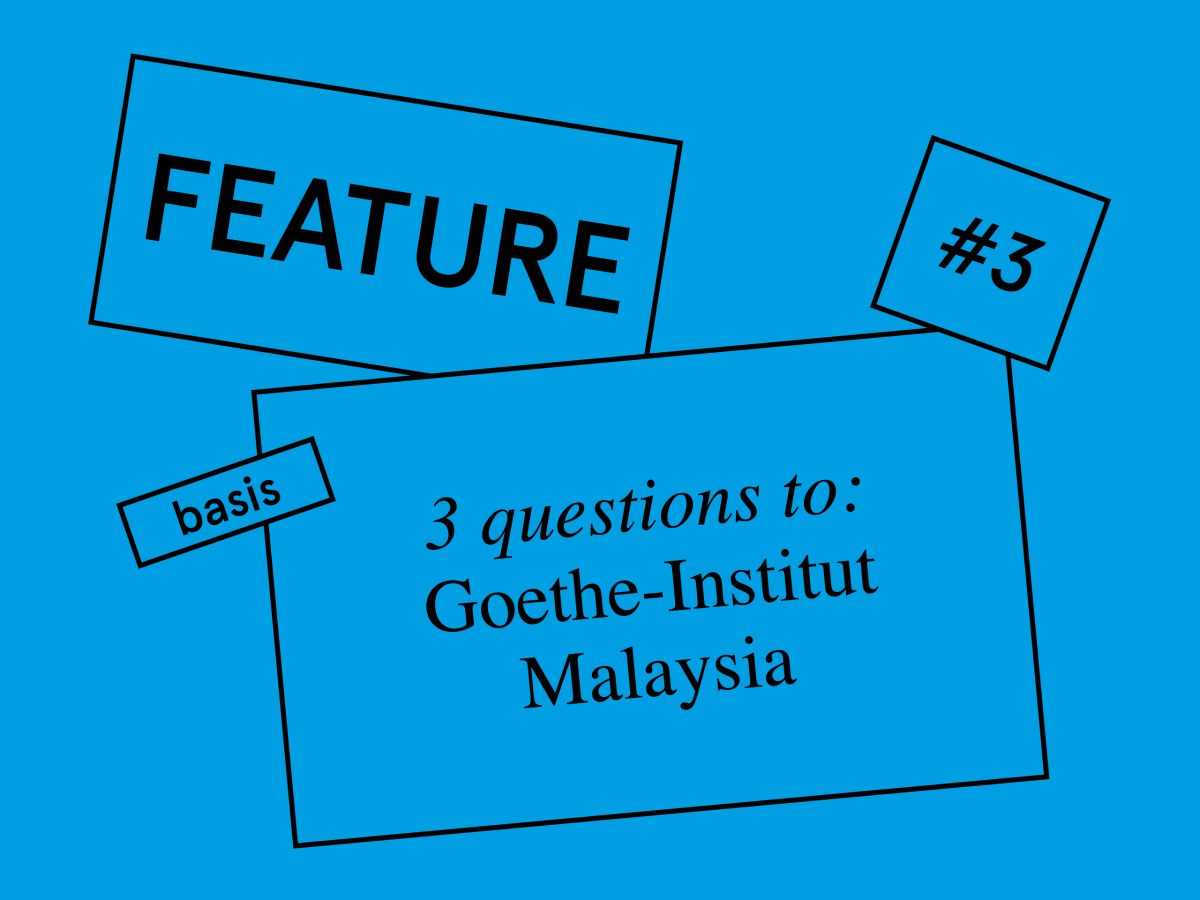3 Questions to David Ngui, Goethe-Institut Malaysia, Kuala Lumpur
1. What constitutes your work and in which areas are you active?
The Goethe-Institut is the official German cultural institute operating worldwide. We in Malaysia organize a wide spectrum of activities in contemporary German culture in cooperation and exchange with our Malaysian cultural partners and partners in Germany. In the cultural department we are actively engaged in performing arts, visual arts, films, residency programs, literature, music and photography.
The language department offers German language courses on all levels, internationally acknowledged examinations as well as in-service seminars for teachers and lecturers of German at secondary and tertiary levels.
In the language media centre of the Goethe-Institut Malaysia, books and media are available for those interested in learning or teaching German. Individual research work can be implemented at internet workstations.
Malaysians, who want to study in Germany can meet a study consultant of the DAAD on a quarterly basis.
2. What is the situation for artists and cultural workers in Malaysia at the moment? Is there any state aid?
Since the Malaysian government imposed the Movement Control Order (MCO) on 18 March, all non-essential services, which includes art and cultural activities are banned altogether. Many art festivals and cultural events nationwide scheduled until the third quarter of the year have mostly been either cancelled or faced with uncertain postponement. Privately owned performing arts theaters, companies, galleries and art spaces will also be crippled financially as they struggle to keep up with the staff salaries, maintenance and utilities costs. The imminent concern is that sooner or later some stakeholders will have to cut jobs and terminate their employees, which will result in unemployment in the arts and cultural sector.
The freelance practitioners, who are depending solely on project funding immediately loose their main source of income and will be the worst affected. Small pockets of art communities have offered alternatives on digital platforms but overall, the Malaysian art scene is not digitally savvy enough to adapt and this will probably take longer time.
The Malaysian government has announced several economic stimulus packages to ease the burden of the people but there is no specific aid for the art and cultural workers yet.
3. How does the Corona crisis affect your work and how do you deal with it?
With the temporary closure of the institute since the MCO was announced, we have shifted to "working from home". In the language teaching field we have been introducing online classes and teaching.
Many cultural activities planned for the rest of the year are affected, some events have to be inevitably cancelled while some events are postponed to the end of year. We are continuously assessing the situation on a daily basis, actively communicating with our affected project partners and together trying to reach the best possible solutions. We are also in the process to create contents and shift to digital formats to continuously engage and support the arts and culture community in this difficult times ahead. Of course, we also adhere to and are supporting all the measures taken by the local authorities to control the crisis and we are hoping that the situation will improve soon.
